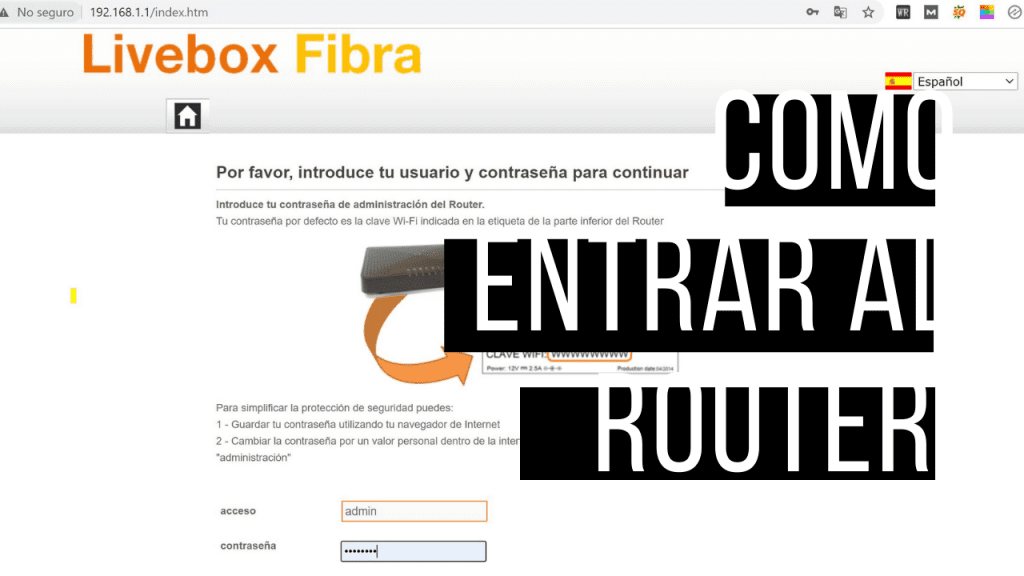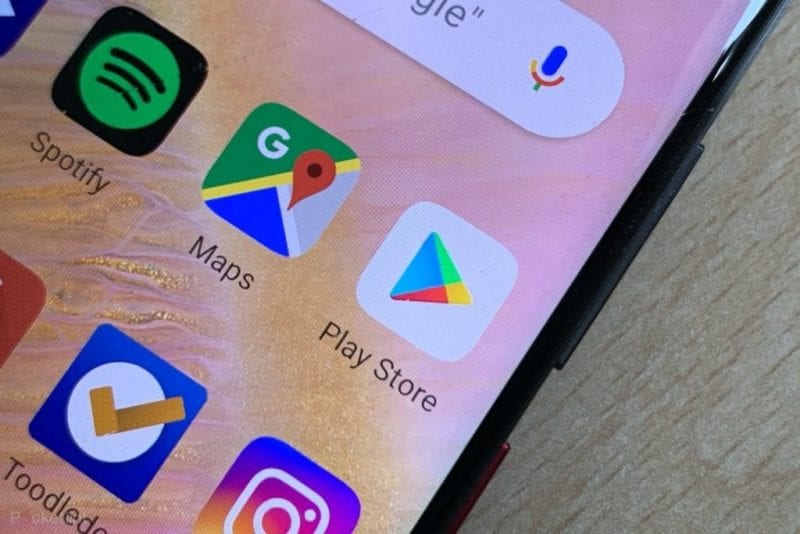The European Union is considering approving a new law to further protect the copyright of content shared on the Internet. This can drastically change the content that can be viewed on the network. One more step forward to censor the Internet, something that was already achieved in the United States by eliminating net neutrality.
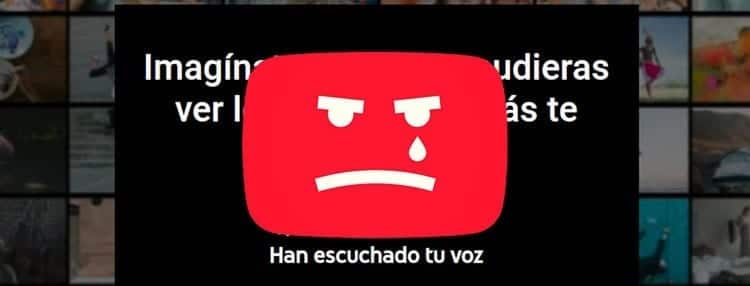
As if from a second round with the ACTA (Anti Counterfeiting Trade Agreement, a law that they already tried to pass in the past, and that could have changed the Internet as we know it) case, the EU is back on track to prevent piracy and protect the creator of the content. Although they continue to protect the same people, and as collateral damage, Internet users are affected.
The draft that was shown suggests that all copyrighted content should be blocked, so it could not continue to be used on both small and large portals. Imagine a Wikipedia 'censored' in its content due to copyright, or a YouTube in which you cannot see your favorite videos. And it is precisely YouTube, and its alma mater Google, who is doing the most campaigning to prevent the Article 13 is approved as written.
Article Content
Google and YouTube's campaign against Article 13 and the million-dollar losses that could result
Google has been the first major company to stand up to users and explain to them roughly Which is what could happen to your preferred platform if the law is approved as it has been shown to the world. YouTube would have to get strict with the Copyright issue and would have to remove all videos from its platform that contain any copyrighted element. They have made use of the video clip Slowly, by Luis Fonsi, within which there are various copyrighted elements so it should be blocked.
Leaving aside the jokes that this may have generated on the internet, following this premise many 'legitimate' music videos could disappear from the platform. YouTube would become a desert of content, and in the same way that the published content would have to be eliminated, all the people who are in charge of creating content for the social video network would be affected. There would be many elements that they could no longer use, which in the long run would mean a flight of content creators.
YouTube could no longer be used in a 'free' way (within the copyright lock that already exists), and Google is terrified about it. Although Google News would also be affected by this change in legislation, YouTube is one of the company's main sources of income, so losing the audience that the platform has would make them stop earning billions of dollars annually.
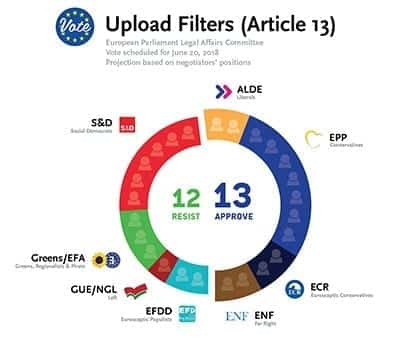 What does Article 13 say?
What does Article 13 say?
In order to speak properly about the changes that this new article that the European Union is promoting will bring, we will first have to read it to discern what problems it may cause for the average user. Below you can read what the already approved draft of this article:
Article 13
1. Information society service providers that store and provide public access to large quantities of works or other features uploaded by their users shall take, in cooperation with rights holders, appropriate measures to ensure the proper functioning of the information society services. agreements concluded with right holders for the use of their works or other subject matter or to prevent works or other subject matter from being available on their services identified by right holders in cooperation with service providers. Such measures, such as the use of effective content recognition techniques, will be appropriate and proportionate. Service providers shall provide right holders with appropriate information on the operation and deployment of the measures, as well as, where appropriate, appropriate information on the recognition and use of works and other features.
2.Member States shall ensure that service providers referred to in paragraph 1 implement complaints and recourse mechanisms that can be accessed by users in the event of a dispute regarding the application of the measures referred to in paragraph 1.
3. Member States shall facilitate, where appropriate, cooperation between information society service providers and right holders through dialogues between interested parties to identify best practices, such as recognition techniques. of adequate and proportionate content, taking into account, in particular, the nature of the services, the availability of technologies and their effectiveness in the light of technological developments.
In the article you can read that all platforms that massively provide content to Internet users must filter it to avoid any copyright violation that may occur. In this way, all internet content that is published on sites with a large audience is affected by this new rule. This means that all social networks would be affected, both Twitter and Facebook, Pinterest, YouTube and a long etcetera, as well as platforms for sharing all kinds of elements, for example GitHub with its code.
No more parodies, no more remixes, no more sharing...

It doesn't matter that it is not the original content that is being shared. Whether it is a remix of a song, or a parody, if it is considered that there is a component, however minimal, in which copyright law may have been infringed, the content will have to be removed. Taking into account that even in videos and musical themes elements of other works can be found, the content available on large platforms will be drastically reduced. Let's not even talk about quotes from works, poems or even news.
Although YouTube already has Content ID, a program that is responsible for analyzing the thousands of hours of video that are published every day automatically, this would not be enough to achieve what Article 13 intends. Google would have to get much tougher about what content it allows through its barriers, so publishing videos could be much more complicated.
Article 13: How does the arrival of this law affect me?
The Internet may soon become a copyright 'prison'. No one will be able to share any copyrighted item, and virtually everything is. We are reaching a point where intellectual property has much greater relevance than being disclosed and made known, regardless of the channel through which it is achieved. The war on Internet piracy is not only taking its toll on websites that illegally share copyrighted content, but it will also negatively affect many legitimate works that should not be censored by a law like this.
As the same article indicates, at first it seems to only affect large portals, those that facilitate access to said information to a large number of people. But, there is an important gap in the terminology used, what do they mean by "large quantities of works"? Hundreds? Thousands? Millions? Until this aspect is clarified, any Internet website could be affected by this measure, and it is not at all complicated to share and 'facilitate public access' to large amounts of content. The same ease with which the memes today.
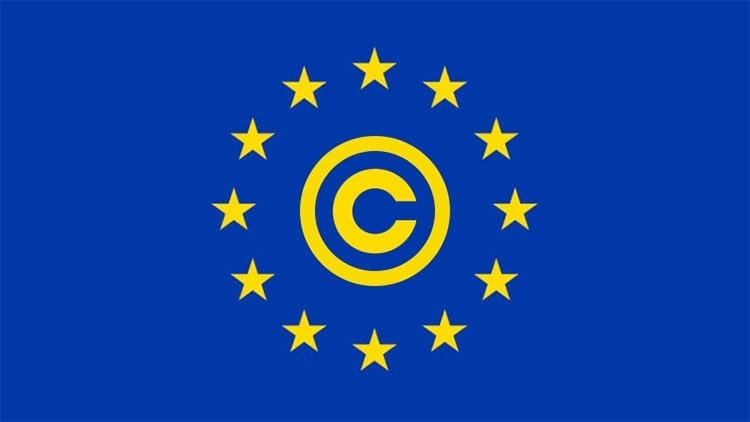
This means that you will not be able to share those videos that you find so funny, or images that catch your attention, or any content with rights on an easily accessible platform. And the sum of the users of popular platforms, regardless of what they consider "large amounts", will give rise to a considerable number of content that, according to said article, will have to be eliminated.
This is an aspect that can drastically change how we use the Internet to share elements. A multitude of alternative avenues would have to be opened to avoid overcrowding the platforms with users and content. Or you could simply no longer share content publicly, so you would have to keep everything up your sleeve, so that it cannot be seen by the EU.
Taking matters into account, what can be done to stop it?
Leaving aside the fact that Google, through YouTube, has asked all users who would like to give their opinion on the subject to make a video about it, there are already many campaigns to pressure the European Parliament to reverse its decision. Although a draft has been approved, the law has not yet been definitively approved, so It's time to act and try to stop her.
Multiple campaigns have been created on Change.org. The most notable is that of Save the Internet, that already has almost 4 million signatures, and which seeks to reach 4,5 million to present it to the EU. In the same way, they have launched a GoFundMe campaign to raise money to carry out various campaigns to confront Article 13 and the other barriers that they want to impose on the free Internet.
Many other important media and groups around the Internet have made themselves heard. Copyright for Creativity, Boing Boing and many others who have already been involved in campaigns against online censorship, are putting pressure on the European Union to prevent the approval of this law that will turn the Internet into an inhospitable, practically apocalyptic place. In the worst case scenario, the Internet could become a site with only traces of what was once a site that people could freely access, but which has become a prison where information is censored. use of any 'work'.

I have been glued to a monitor since a PC fell into my hands in 1997. Now I like to write about everything related to them.
Content writer. Graphic Designer and Search Engine Optimization




